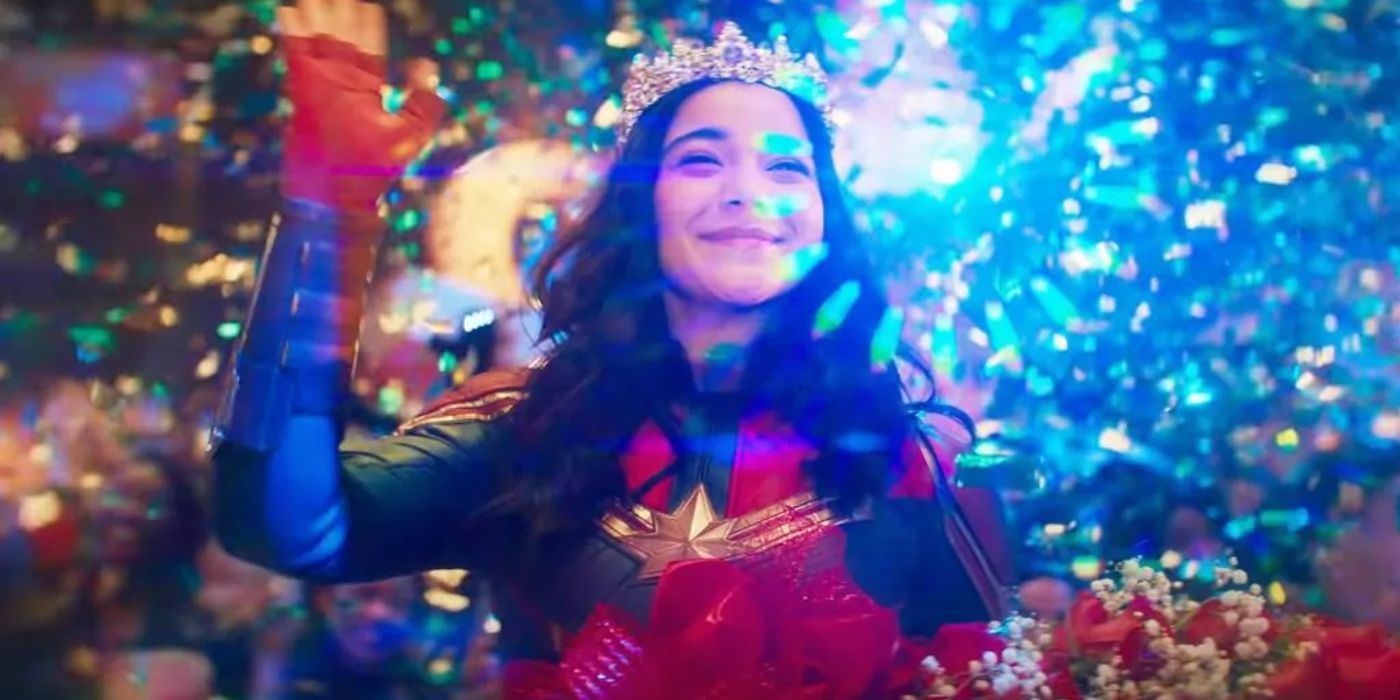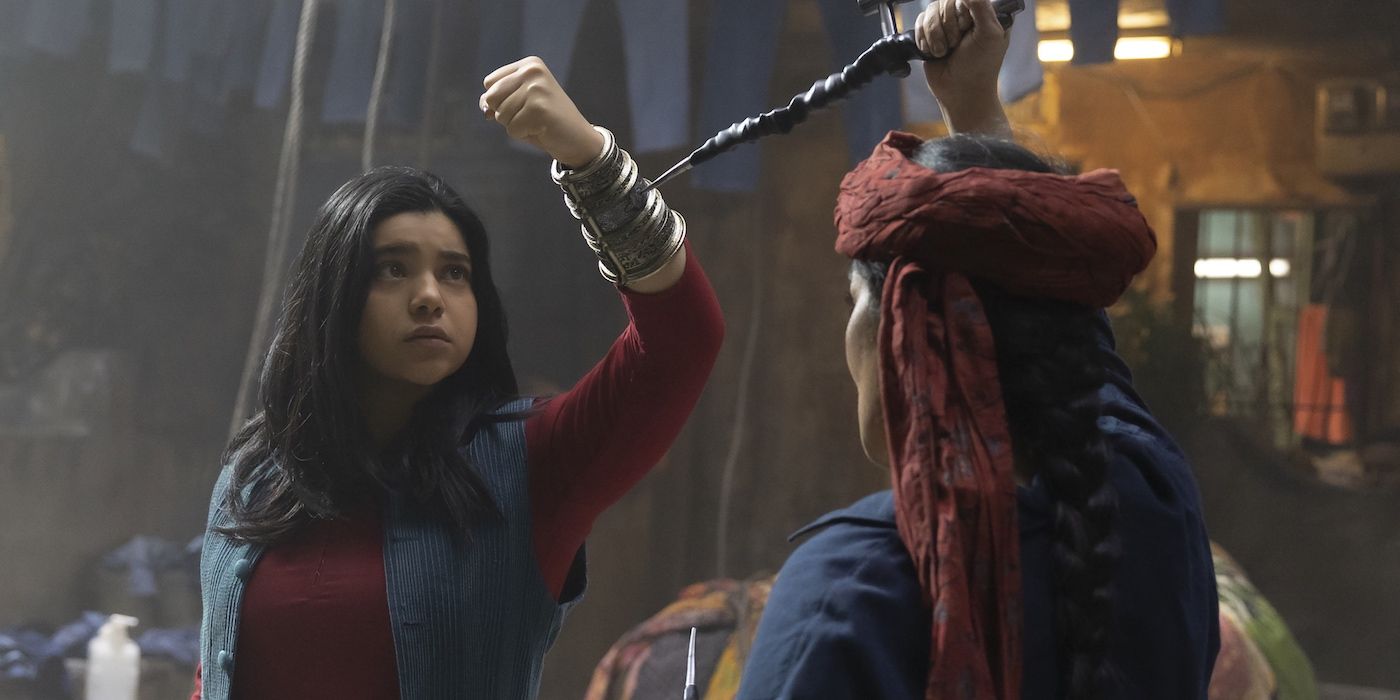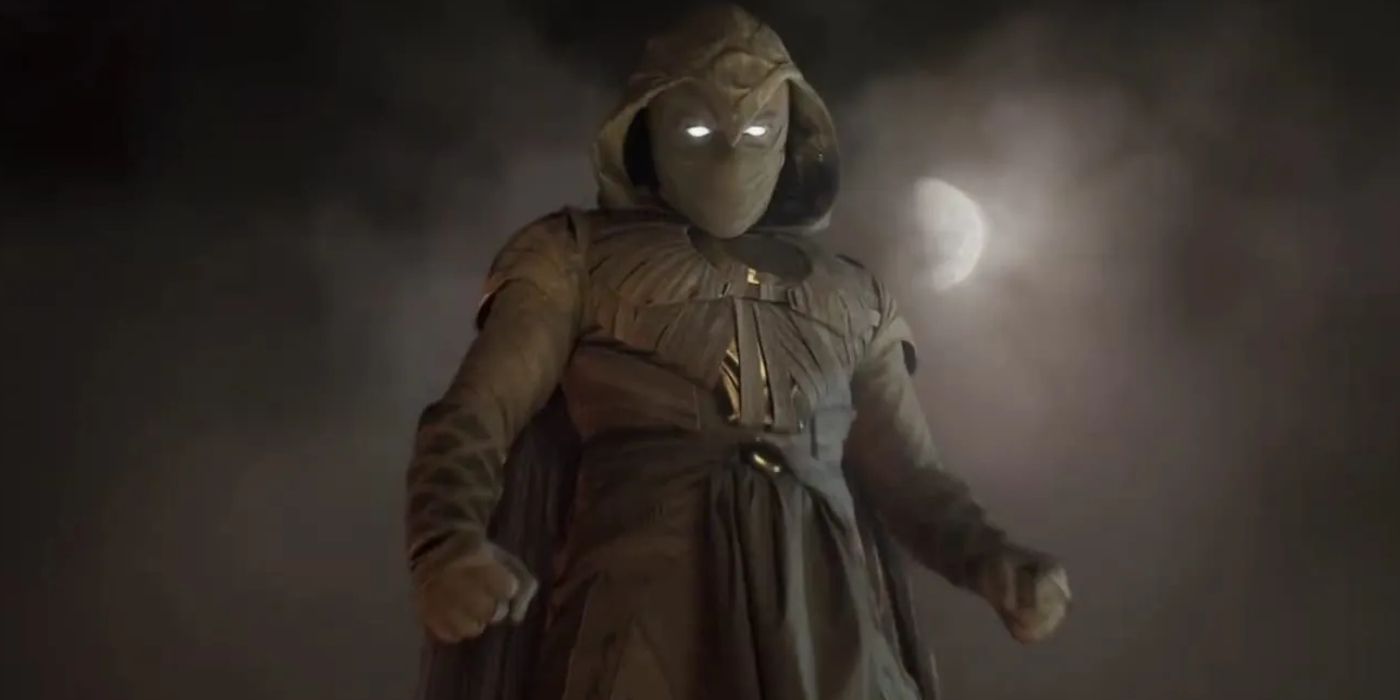The following contains spoilers for Ms. Marvel Season 1, Episode 5, "Time and Again," now streaming on Disney+.
Ms. Marvel is heading towards its final episode with a bang, but strangely it doesn't feel ready to go out with one. Like most shows in the Marvel Cinematic Universe, Ms. Marvel is a victim of having six episodes -- a format that stubbornly still exists because of the MCU's inability to understand television's medium.
Ms. Marvel's fifth episode, "Time and Again," shows that (time and again) MCU series are facing the same problem with the six-episode formula. Moon Knight jerks the audience out of the action for a slower backstory in its own fifth episode, and Ms. Marvel oddly repeats this tactic. In the matter of one episode, Ms. Marvel gives its villain an origin story, kills off its villain and all while playing out a family history flashback. Somehow, the story both feels wrapped up, yet underdeveloped knowing that there's still a finale due to air. It's a mystery how the MCU can get television wrong so many times, but there might be an underlying answer: the lack of a showrunner.
Back in 2019, Marvel Studios president Kevin Feige presented The Falcon and the Winter Soldier's lead creative team at the D23 Expo in Anaheim, "I would love you to meet our head writer, Malcolm Spellman." Using the term "head writer" was no mistake on Feige's part -- there isn't a showrunner for any MCU show, because Feige is the showrunner. It's a radical methodology in the television world, considering showrunners traditionally call all the shots. But having no showrunner means it's still Feige's world, and in his world, movies dominate. He's dead set on changing television's storytelling framework to meld with franchise filmmaking -- and it's not working.
For reasons no one can explain, the MCU isn't willing to change the six-episode format for its TV shows. WandaVision and What If...? had nine episodes, but other series like Ms. Marvel are suffering from the six-episode format. It's a valid argument to make the shows longer. The shows are poorly paced at times, and the tone is barely consistent. Some episodes are painfully slow, leaving others to cram in exposition and action-packed third act finales at the last minute. For this reason, an experienced showrunner could act as a second opinion, clarifying that these shows deserve more episodes and that TV requires certain tools and techniques that film doesn't offer.
Maybe the best way to describe this issue is through the lens of what the MCU essentially is: a grubby, hard-at-work assembly line in a factory. Kevin Feige, the CEO of the MCU factory, wants to extend his brand (let’s say Feige knows how to make a darn soft cotton t-shirt for this example). Feige wants to stay in the same realm of apparel, so he chooses jeans to compete with Levi. The problem is, Feige isn’t that experienced in making and designing jeans, nor is anyone at his factory. But denim is technically cotton, so it can’t be different from shirts, right? Wrong. The jeans sell well because it has a big name to it, but they begin to fall apart because Feige’s employees didn’t use a twill weave that distinguishes denim from cotton.
Obviously, comparing movies and TV shows to shirts and jeans isn’t apples to apples, but it’s a similar principle. Movies and TV shows are in the same realm of screening entertainment, but are still vastly different mediums. They both have different narrative structures, with television's distinguishable "twill weave" being more writing in the long-run and not focusing so heavily on visuals and cinematography.
Feige’s MCU formula might be predictable, but it's a successful billion-dollar film formula. Unfortunately, it just doesn’t translate well to television because of how condensed it is (meaning, it has a definite beginning, middle and end). Because unlike films, television doesn’t really follow a formula. But Disney+’s MCU shows want to have their beginning, middle and end — the head writers just don’t know where to put them in their broken up six-hour movie.
With Ms. Marvel suffering from review-bombing and a criminal case of infectious cliffhangers, the six-episode format will only make matters worse in the finale. It's no wonder the show is heading downhill at rocket-powered speed, but it doesn't deserve to. The MCU shows are meant to be a spotlight for the underrated and minority superheroes of Marvel's larger world. How can they possibly tell their rightful story if Marvel is failing to give them a commendable amount of time in said spotlight?
To see if Ms. Marvel can break the six-episode curse, watch Episode 6, Wednesday on Disney+.



